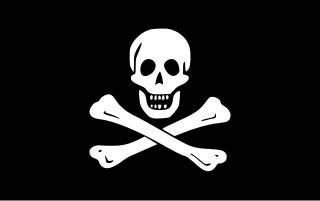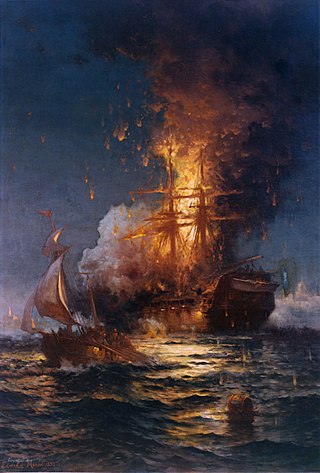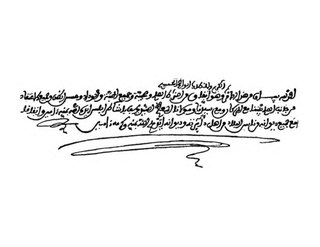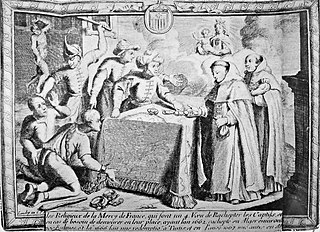
Piracy is an act of robbery or criminal violence by ship or boat-borne attackers upon another ship or a coastal area, typically with the goal of stealing cargo and other valuable goods. Those who conduct acts of piracy are called pirates, and vessels used for piracy are called pirate ships. The earliest documented instances of piracy were in the 14th century BC, when the Sea Peoples, a group of ocean raiders, attacked the ships of the Aegean and Mediterranean civilisations. Narrow channels which funnel shipping into predictable routes have long created opportunities for piracy, as well as for privateering and commerce raiding.

A privateer is a private person or vessel which engages in commerce raiding under a commission of war. Since robbery under arms was a common aspect of seaborne trade, until the early 19th century all merchant ships carried arms. A sovereign or delegated authority issued commissions, also referred to as letters of marque, during wartime. The commission empowered the holder to carry on all forms of hostility permissible at sea by the usages of war. This included attacking foreign vessels and taking them as prizes and taking crews prisoner for exchange. Captured ships were subject to condemnation and sale under prize law, with the proceeds divided by percentage between the privateer's sponsors, shipowners, captains and crew. A percentage share usually went to the issuer of the commission.

The First Barbary War (1801–1805), also known as the Tripolitan War and the Barbary Coast War, was a conflict during the 1801–1815 Barbary Wars, in which the United States fought against Ottoman Tripolitania. Tripolitania had declared war against the United States over disputes regarding tributary payments in exchange for a cessation of Tripolitanian commerce raiding at sea. United States President Thomas Jefferson refused to pay this tribute. The First Barbary War was the first major American war fought outside the New World, and in the Arab world, besides the smaller American–Algerian War (1785–1795).

The Barbary Wars were a series of two wars fought by the United States, Sweden, and the Kingdom of Sicily against the Barbary states and Morocco of North Africa in the early 19th century. Sweden had been at war with the Tripolitans since 1800 and was joined by the newly independent US. The First Barbary War extended from 10 May 1801 to 10 June 1805, with the Second Barbary War lasting only three days, ending on 19 June 1815. The Barbary Wars were the first major American wars fought entirely outside the New World, and in the Arab World.

The Second Barbary War, also known as the U.S.–Algerian War and the Algerine War, was a brief military conflict between the United States and the North African state of Algiers in 1815.

USS Constellation was a nominally rated 38-gun wooden-hulled, three-masted frigate of the United States Navy.

The Treaty of Tripoli was signed in 1796. It was the first treaty between the United States and Tripoli to secure commercial shipping rights and protect American ships in the Mediterranean Sea from local Barbary pirates.

The Barbary corsairs, Barbary pirates, Ottoman corsairs, or naval mujahideen were mainly Muslim corsairs and privateers who operated from the largely independent Barbary states. This area was known in Europe as the Barbary Coast, in reference to the Berbers. Slaves in Barbary could be of many ethnicities, and of many different religions, such as Christian, Jewish, or Muslim. Their predation extended throughout the Mediterranean, south along West Africa's Atlantic seaboard and into the North Atlantic as far north as Iceland, but they primarily operated in the western Mediterranean. In addition to seizing merchant ships, they engaged in razzias, raids on European coastal towns and villages, mainly in Italy, France, Spain, and Portugal, but also in the British Isles, and Iceland.

Pirate havens are ports or harbors that are a safe place for pirates to repair their vessels, resupply, recruit, spend their plunder, avoid capture, and/or lie in wait for merchant ships to pass by. The areas have governments that are unable or unwilling to enforce maritime laws. This creates favorable conditions for piracy. Pirate havens were places where pirates could find shelter, protection, support, and trade.

The sack of Baltimore took place on 20 June 1631, when the village of Baltimore in West Cork, Ireland, was attacked by pirates from the Barbary Coast of North Africa – the raiders included Dutchmen, Algerians, and Ottoman Turks. The attack was the largest by Barbary slave traders on Ireland.

The Golden Age of Piracy is a common designation for the period between the 1650s and the 1730s, when maritime piracy was a significant factor in the histories of the North Atlantic and Indian Oceans.
Captain Ward and the Rainbow, or Ward the Pirate is an English-language folk song. It recounts a tale of the pirate Captain Ward, likely Jack Ward.
The Young Earl of Essex’s Victory Over the Emperor of Germany, also known as Queen Elizabeth's Champion or Great Britain's Glory, is an English-language traditional folk song. With variations, the main story tells of an earl who goes to sea and confronts the German ships. The earl defeats the German emperor's son.

Captain Richard Avery Hornsby was an 18th-century British military figure, famous for successfully taking on a boat full of French pirates in 1744.

The Barbary slave trade involved the capture and selling of European slaves at slave markets in the largely independent Ottoman Barbary states. European slaves were captured by Barbary pirates in slave raids on ships and by raids on coastal towns from Italy to Ireland, and the southwest of Britain, as far north as Iceland and into the Eastern Mediterranean.
The April 2009 raid off Somalia was a military operation conducted by France and Germany to retake the French yacht Tanit on 9 April 2009, a yacht which had been captured by Somali pirates on 4 April 2009. It occurred during Operation Atalanta, a European Union mission in Somali waters. The pirates had attempted to extract a ransom by holding the yacht's occupants hostage, but were ultimately defeated when the French Navy assaulted them.
The "Coast of High Barbary" is a traditional song which was popular among British and American sailors. It is most frequently sung as a ballad but can also be a sea shanty. It tells of a sailing ship that came across a pirate ship off the Barbary Coast and defeated the pirates, who were left to drown.

Slavery on the Barbary Coast refers to the enslavement of people taken captive by the Barbary corsairs of North Africa.
"Proposals for concerted operation among the powers at war with the Pyratical states of Barbary" was the title of an identic note written by Thomas Jefferson in 1786, when he was the American ambassador to France. It proposed an intergovernmental military alliance for purposes of instituting a naval blockade of the Ottoman Regency of Algiers, which allowed the Barbary pirates to attack ships. The alliance was opposed by Congress and was never implemented.

Slavery existed in Morocco since antiquity until the 20th century. Morocco was a center of the Trans-Saharan slave trade route of enslaved Black Africans from sub-Saharan Africa until the 20th century, as well as a center of the Barbary slave trade of Europeans captured by the Barbary pirates until the 19th century. The open slave trade was finally suppressed in Morocco in the 1920s. The haratin and the gnawa have been referred to as descendants of former slaves.















